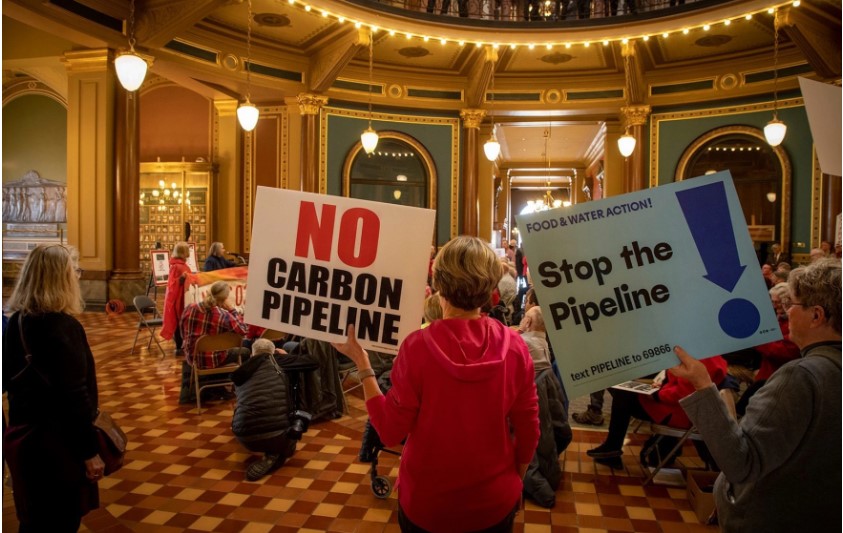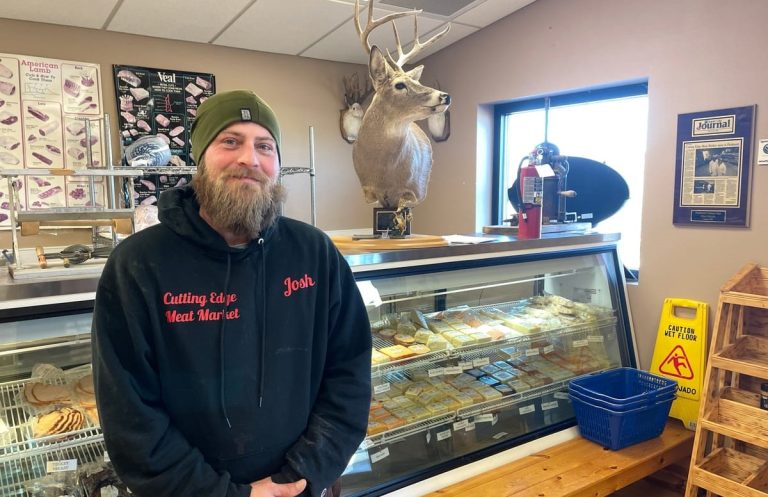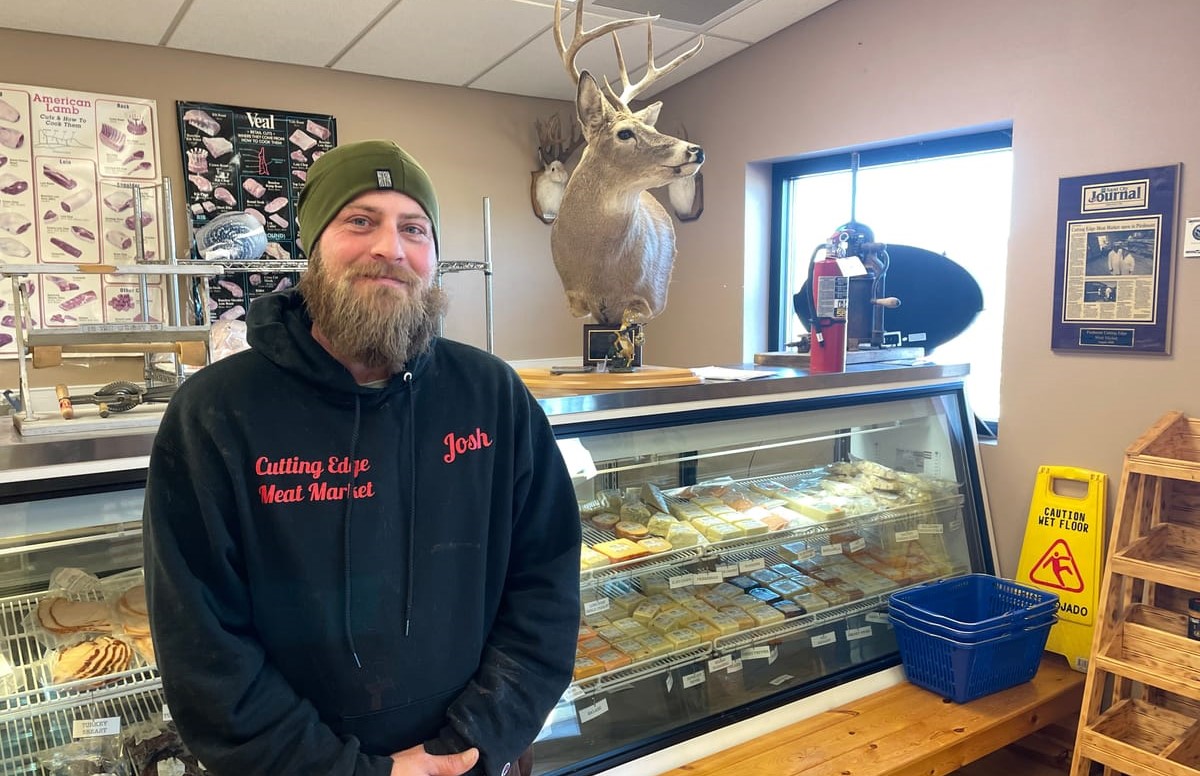PIERRE, S.D. — All parties involved in a piece of legislation over a controversial subject in South Dakota are attempting to reach a compromise.
That’s the hope of SB201 in trying to find common ground.
There are the state’s ethanol plants and Summit Carbon Solutions on one side, and landowners and local government officials who oppose using eminent domain in particular and carbon sequestration pipelines in general, on the other.
The bill ultimately passed the Senate Commerce and Energy Committee 7 to 2.
Republican Senate Majority Leader Casey Crabtree from Madison introduced the bill.
“It is an emotional issue for many on both sides of the debate,” he said. “Today we get a chance to separate those emotions from facts and begin solving this issue. Senate Bill201 is brought to you as a measure of compromise. Now, compromise shouldn’t be a negative word.”
He said he was trying to balance respect for landowners and the pipeline developers’ need for certainty.
One of the bill’s key components is that it would curtail local input into the process, particularly concerning setbacks. The Public Utilities Commission would preempt city and county governments from setting up setbacks.
Opponents hammered the bill for what they say is a repudiation of local governments’ interest in doing what’s best for their citizens.
Even some of the bill’s supporters were less than enthusiastic about it.
Summit Carbon Solutions lobbyist Brett Koenecke.
“I’m not a huge fan of this bill as amended,” he first observed, but added, “I was told to come up here to try and find a way forward for this project-find a path to get this project accomplished. And for all its faults, SB201 is that.”
His biggest concern was dealing with local governments and how some counties managed the previous attempt to influence the siting of the pipeline.
Koenecke said it was a “Balkanized system of pipeline regulation.”
County officials at the hearing took offense to that statement.
Brown County Commissioner Drew Dennert from Columbia.
“Many factors can be a part of the decision-making process,” he said. “But at the end of the day, certain types of structures, certain types of businesses, certain uses of property don’t make sense everywhere. Our ordinance and our setbacks make sense for our community and they must be honored.
Koeneke had also testified that the federal government preempted the state government concerning pipeline safety.
Hand County Commissioner Jim Eschenbaum from Miller disagreed.
“Tell the federal government to go pound sound,” said Eschenbaum. “We’re South Dakotans. We’ll take care of things here in South Dakota. And we will maintain our local control. We don’t need SB201.”
Many of the other bills introduced in the House addressing the carbon pipeline projects have gone down to defeat in the House Commerce and Energy Committee.
SB201 now goes to the Senate floor for debate.











